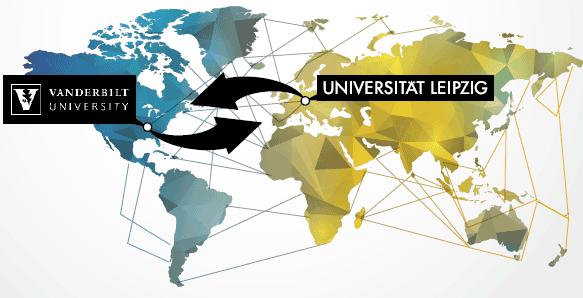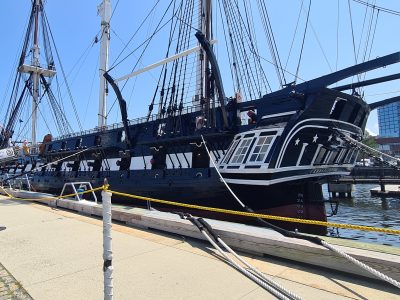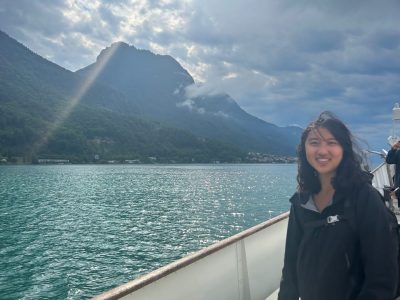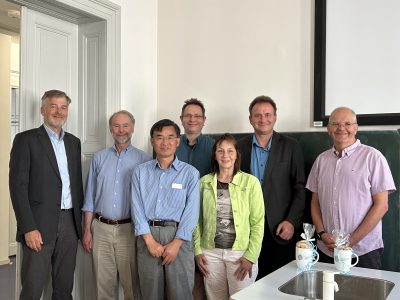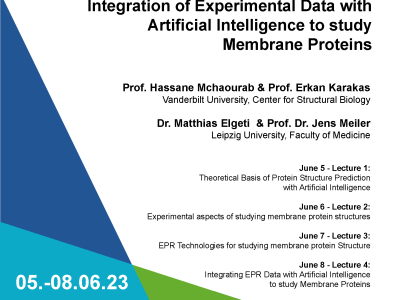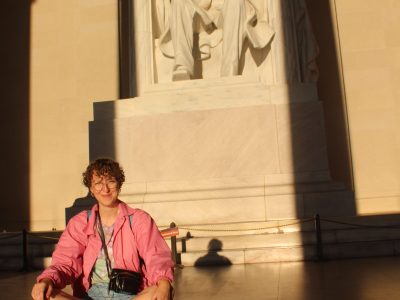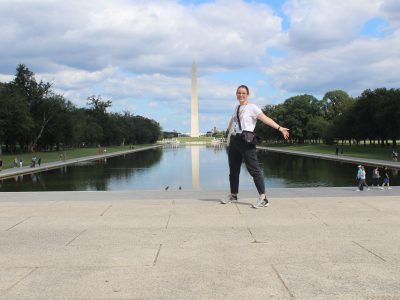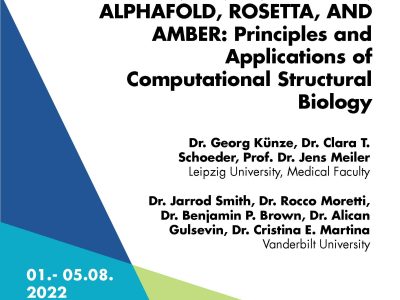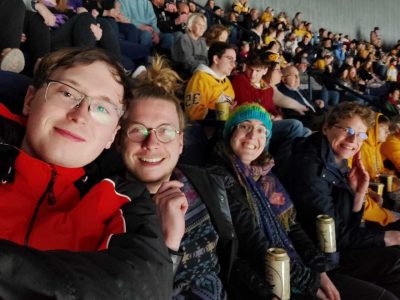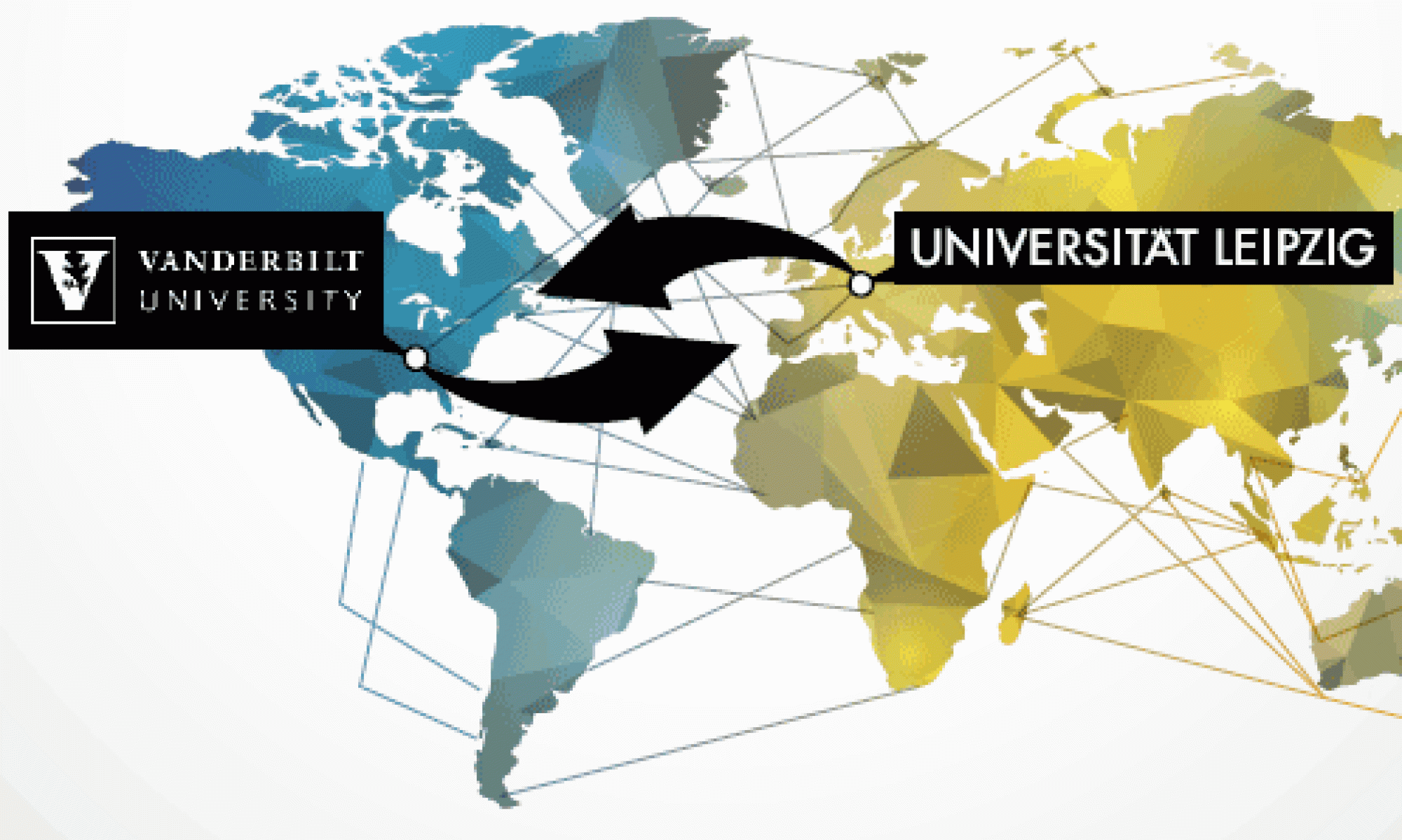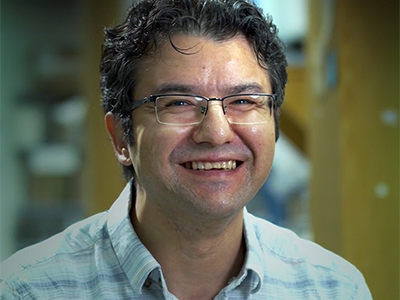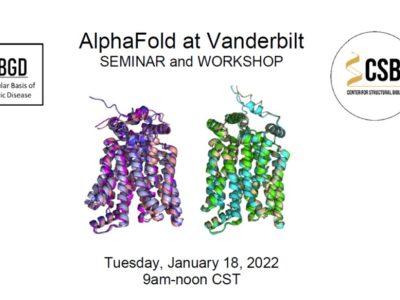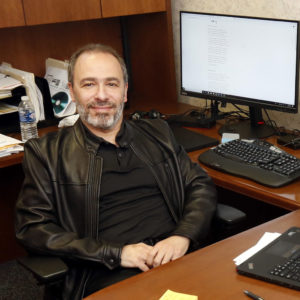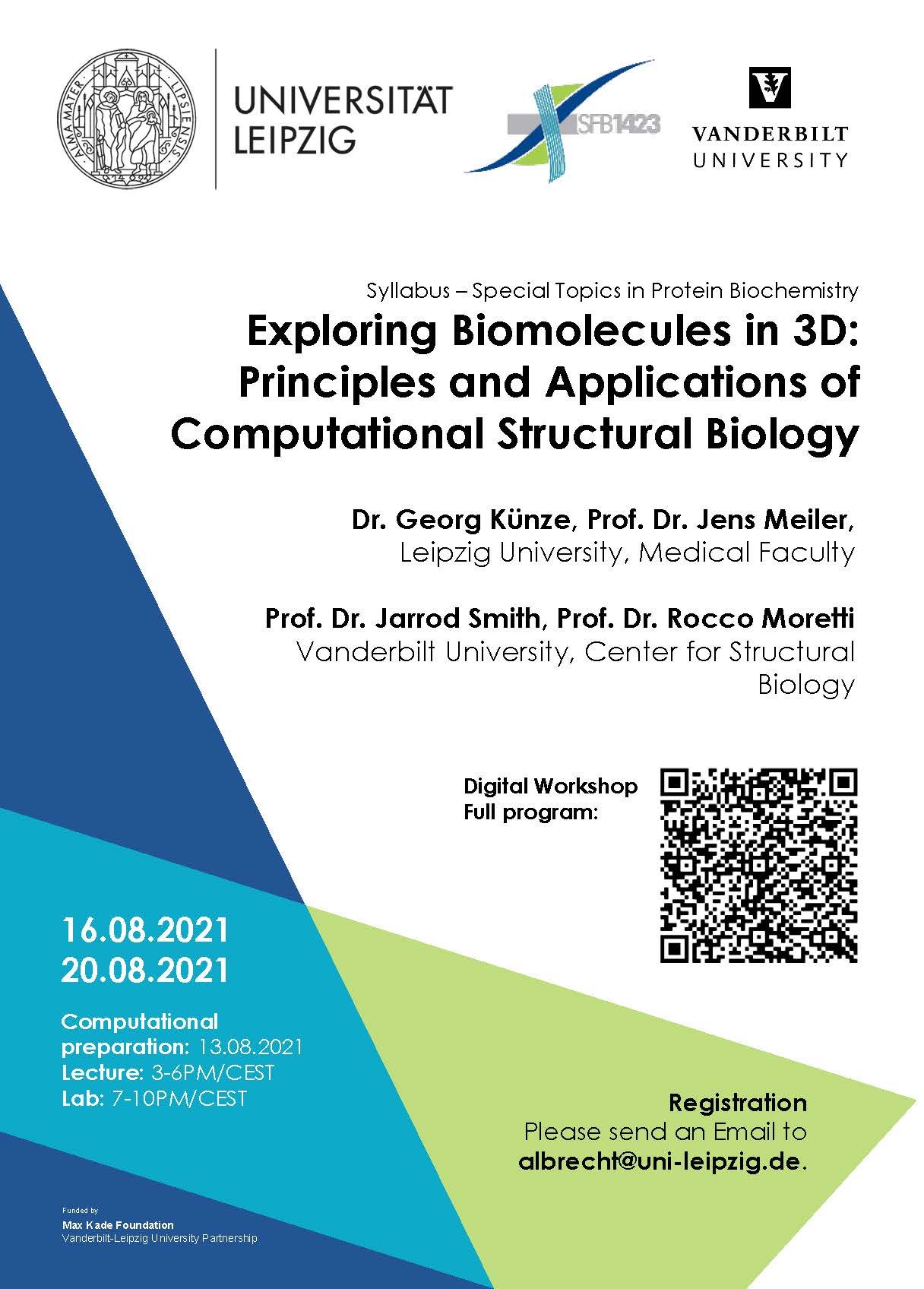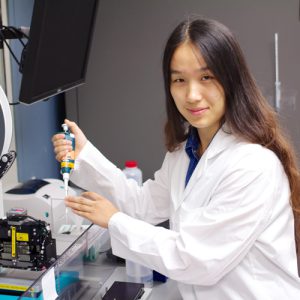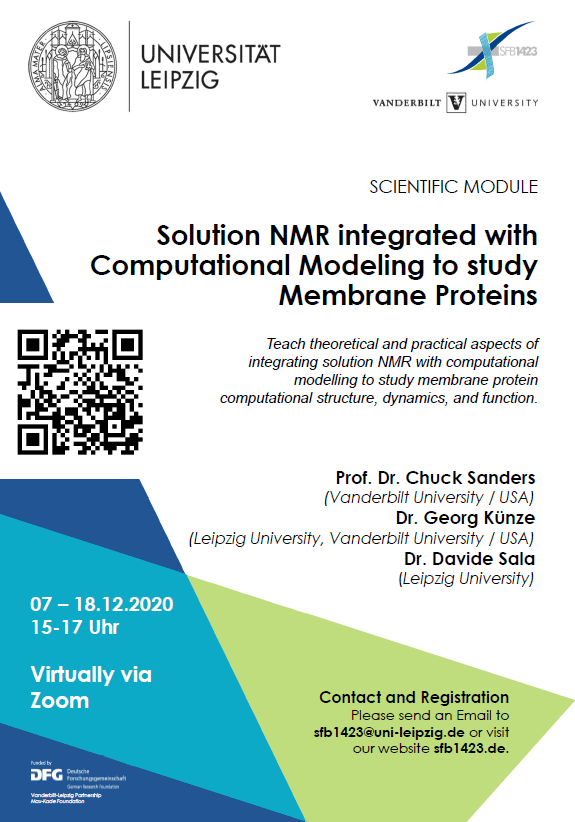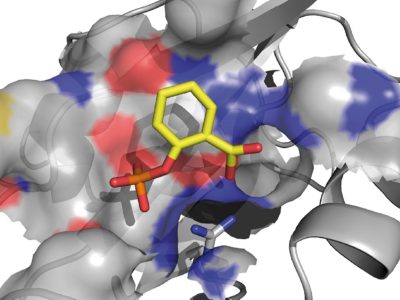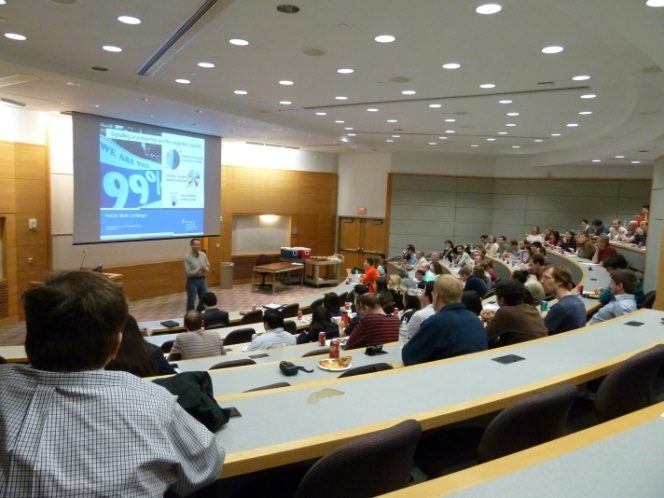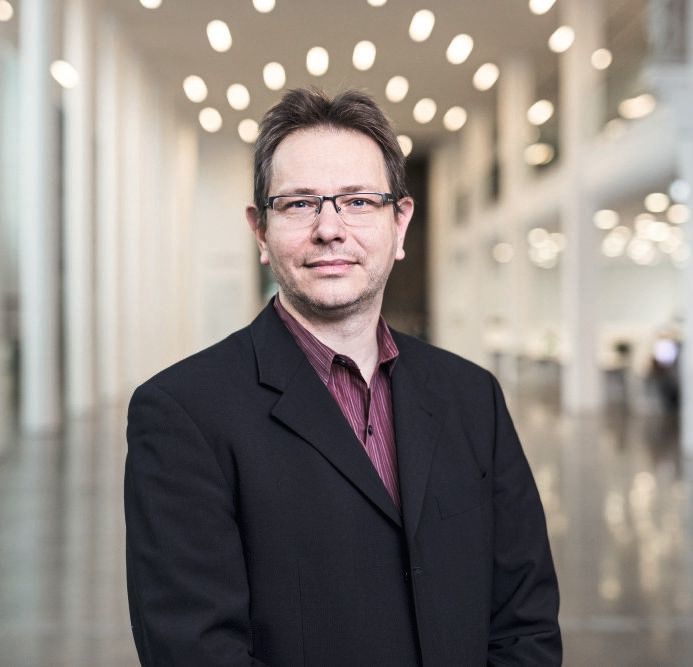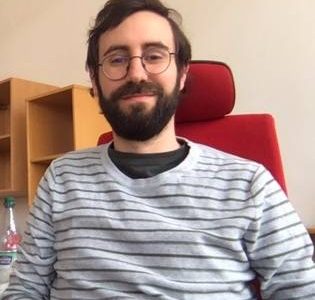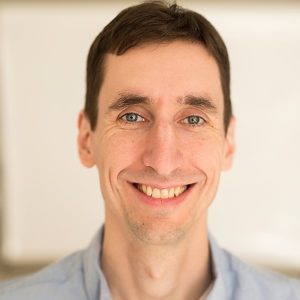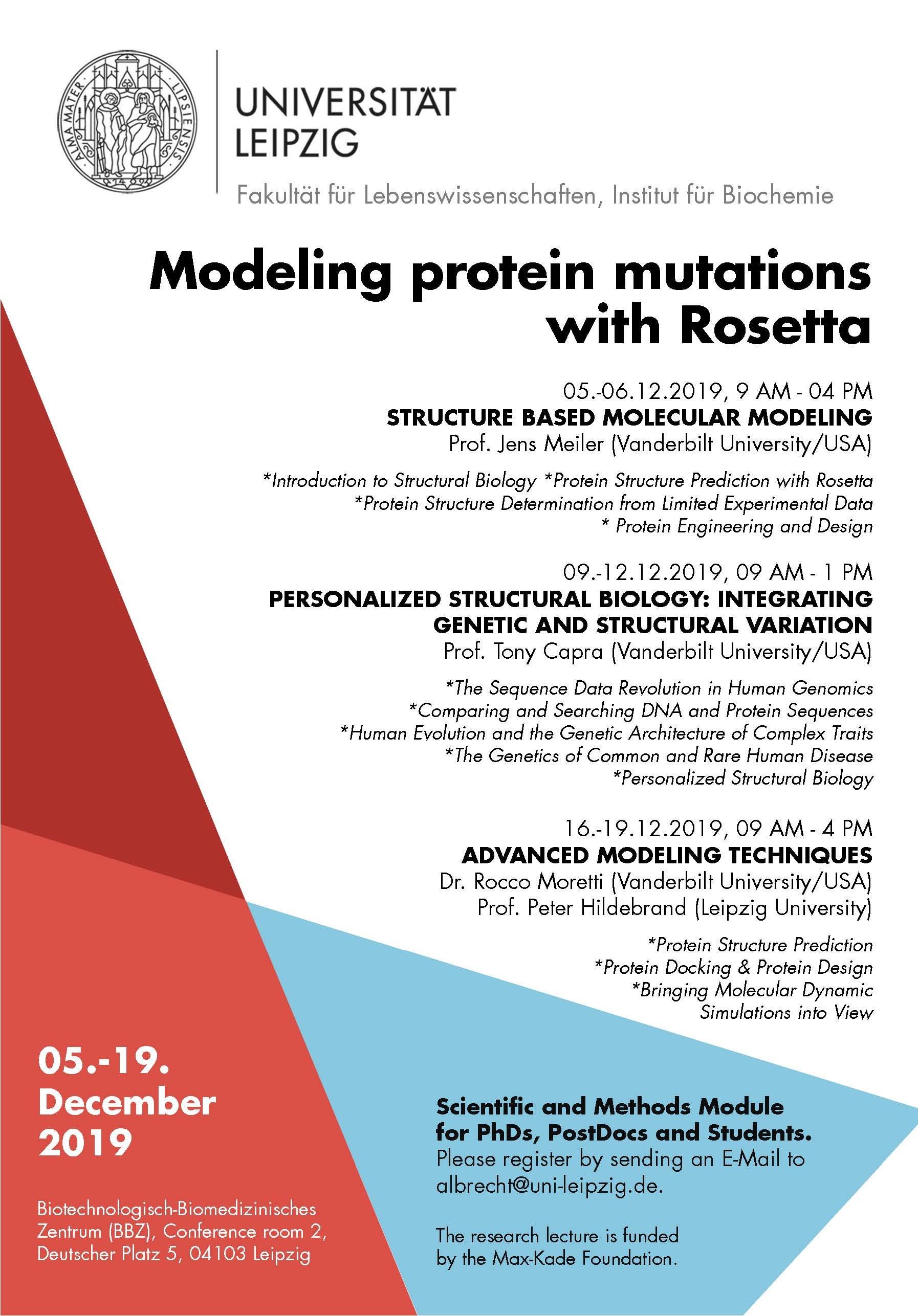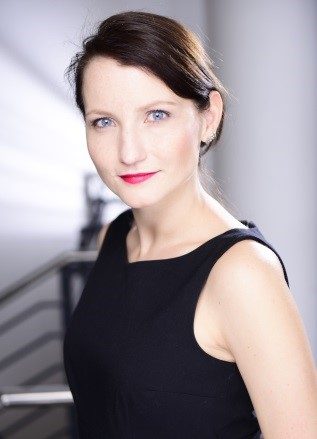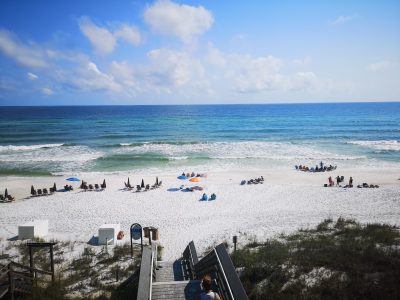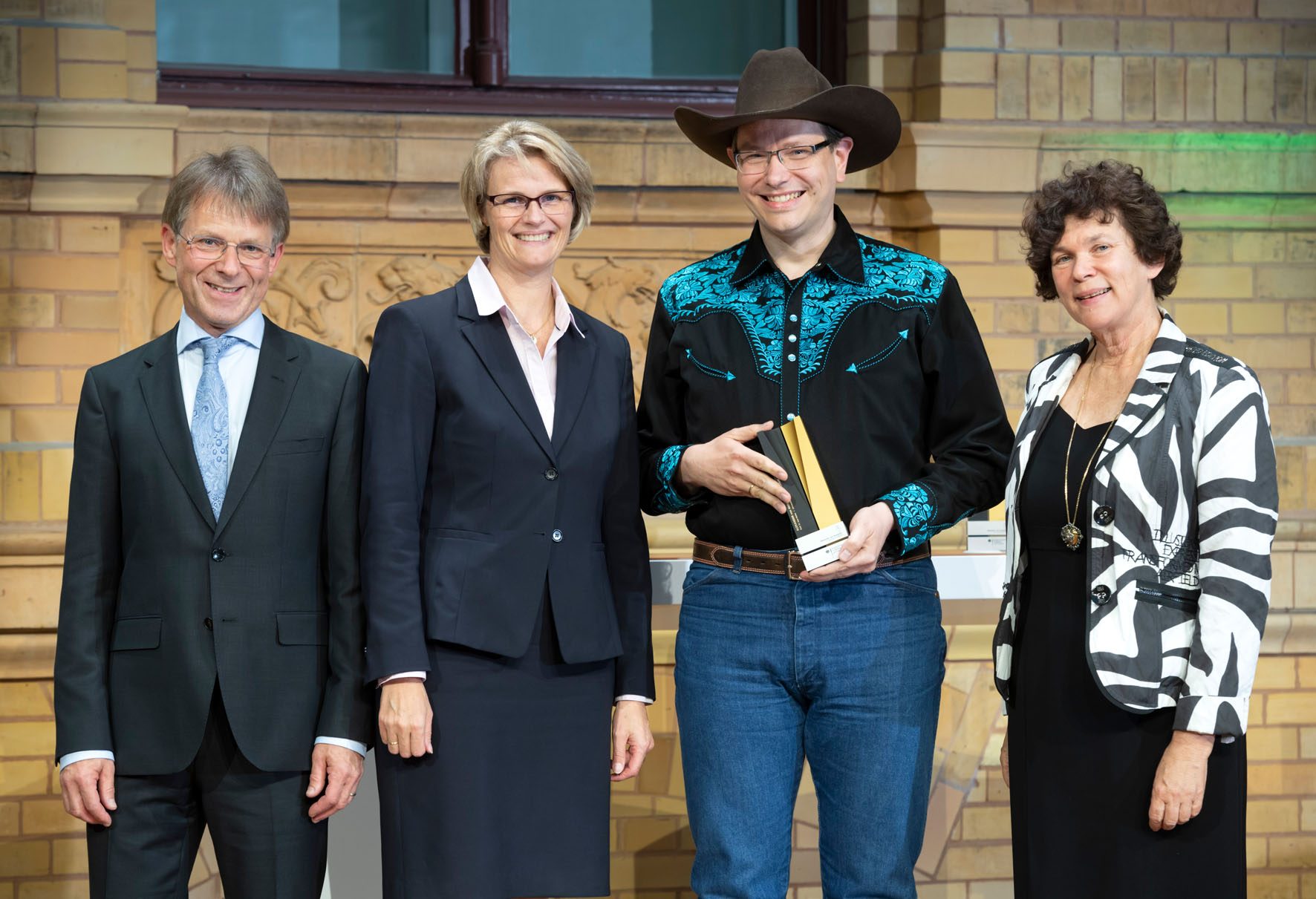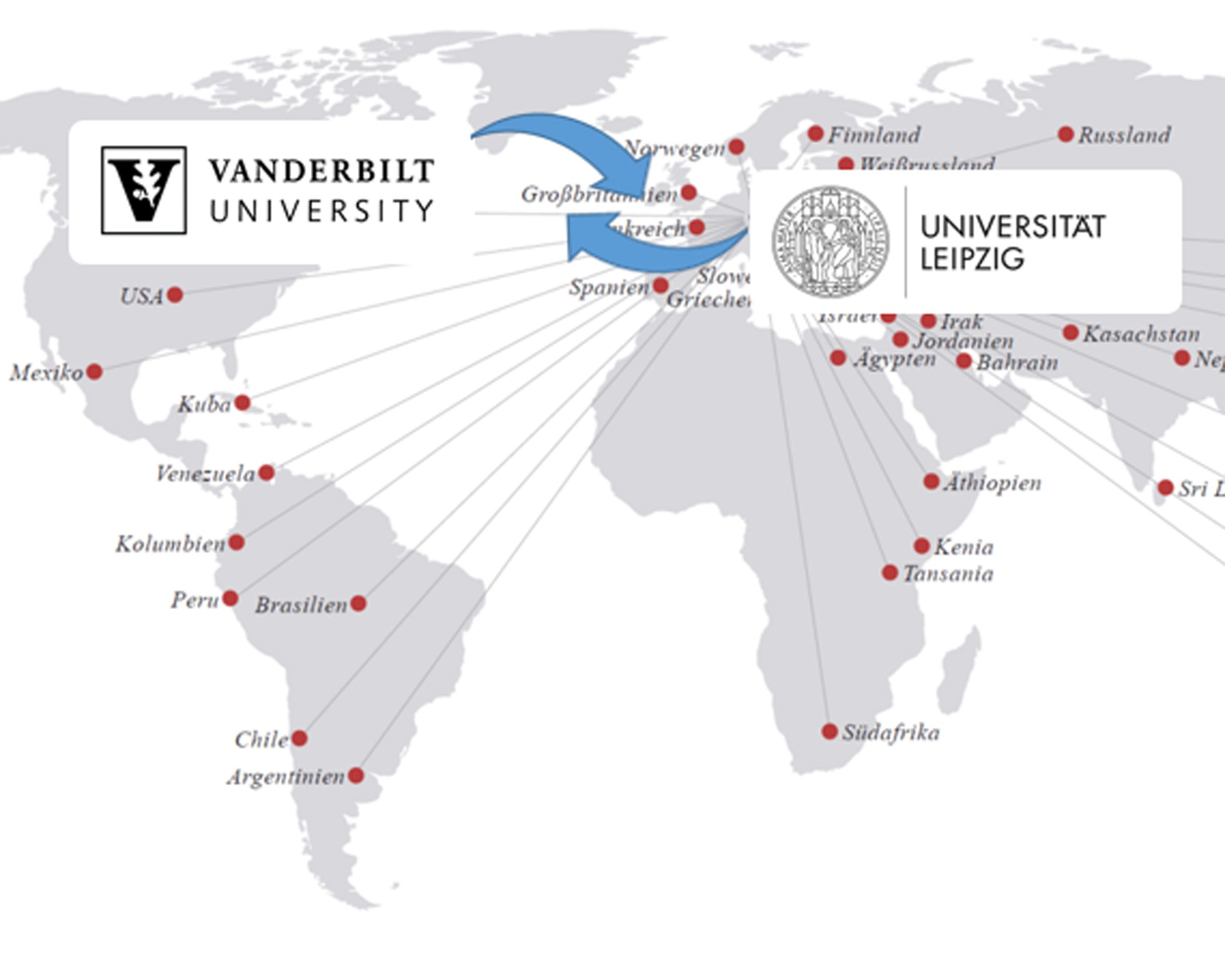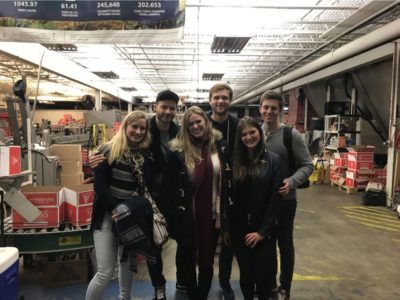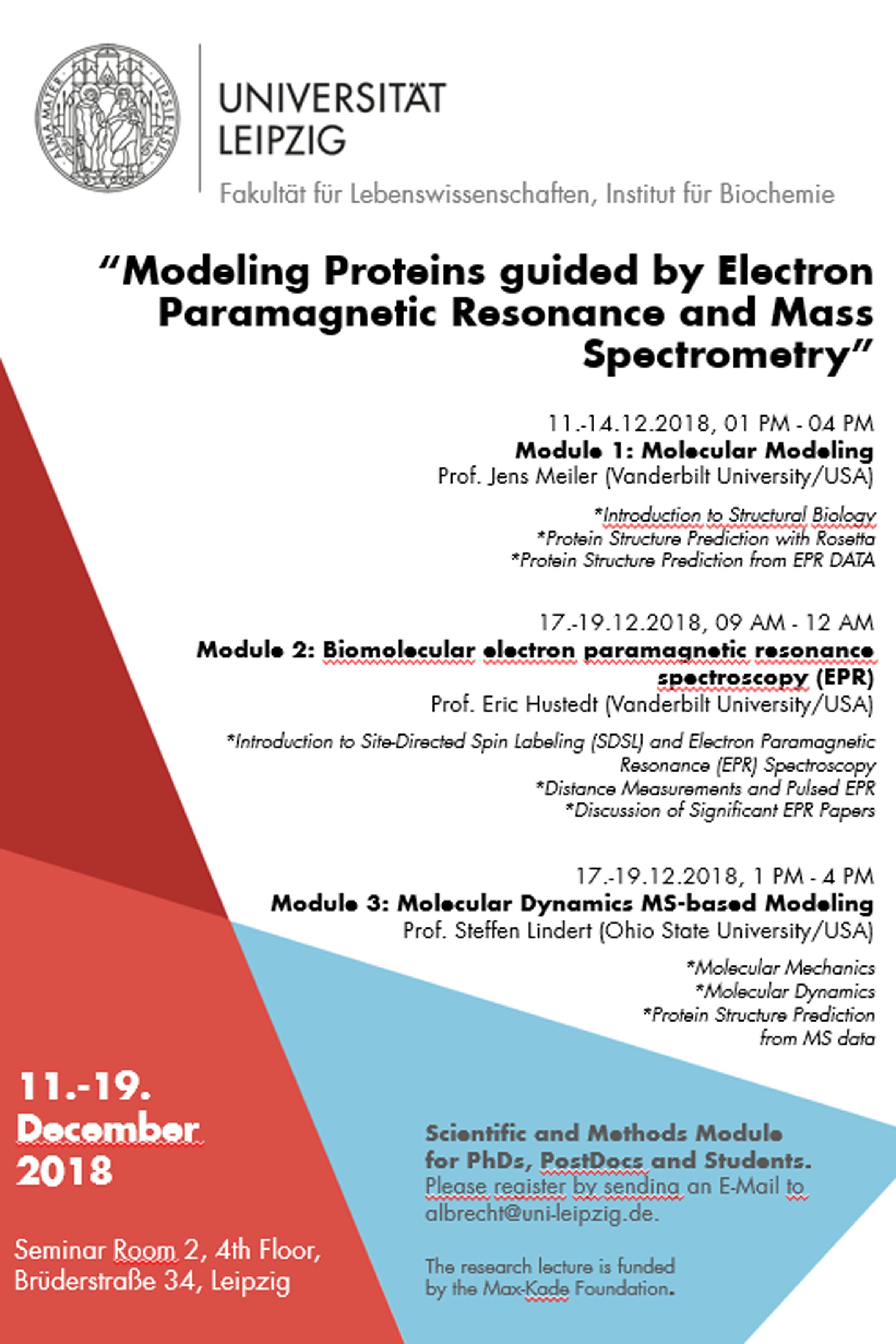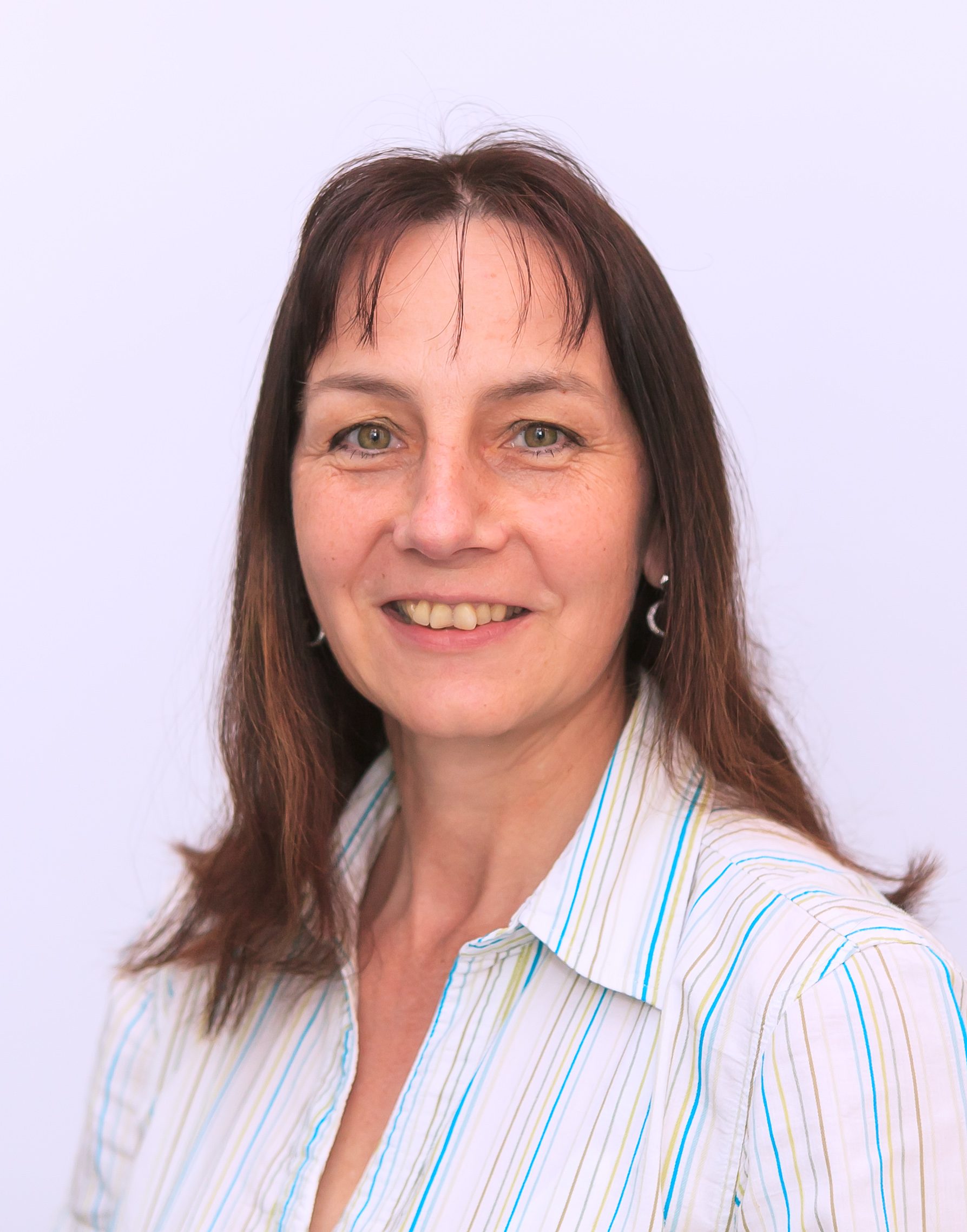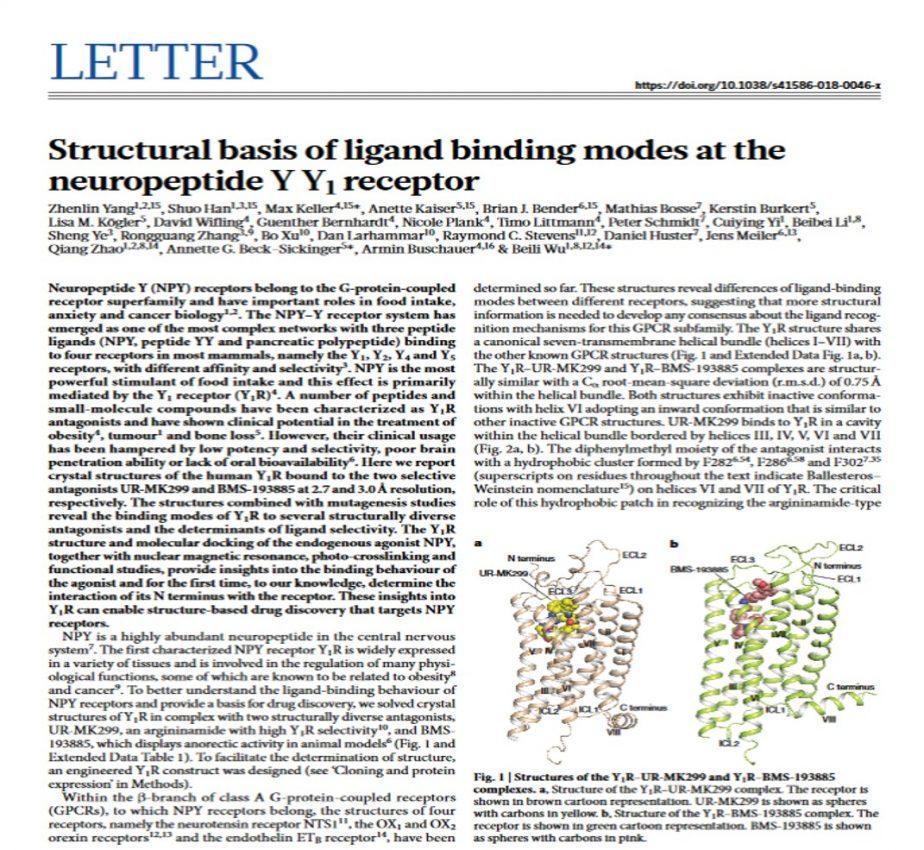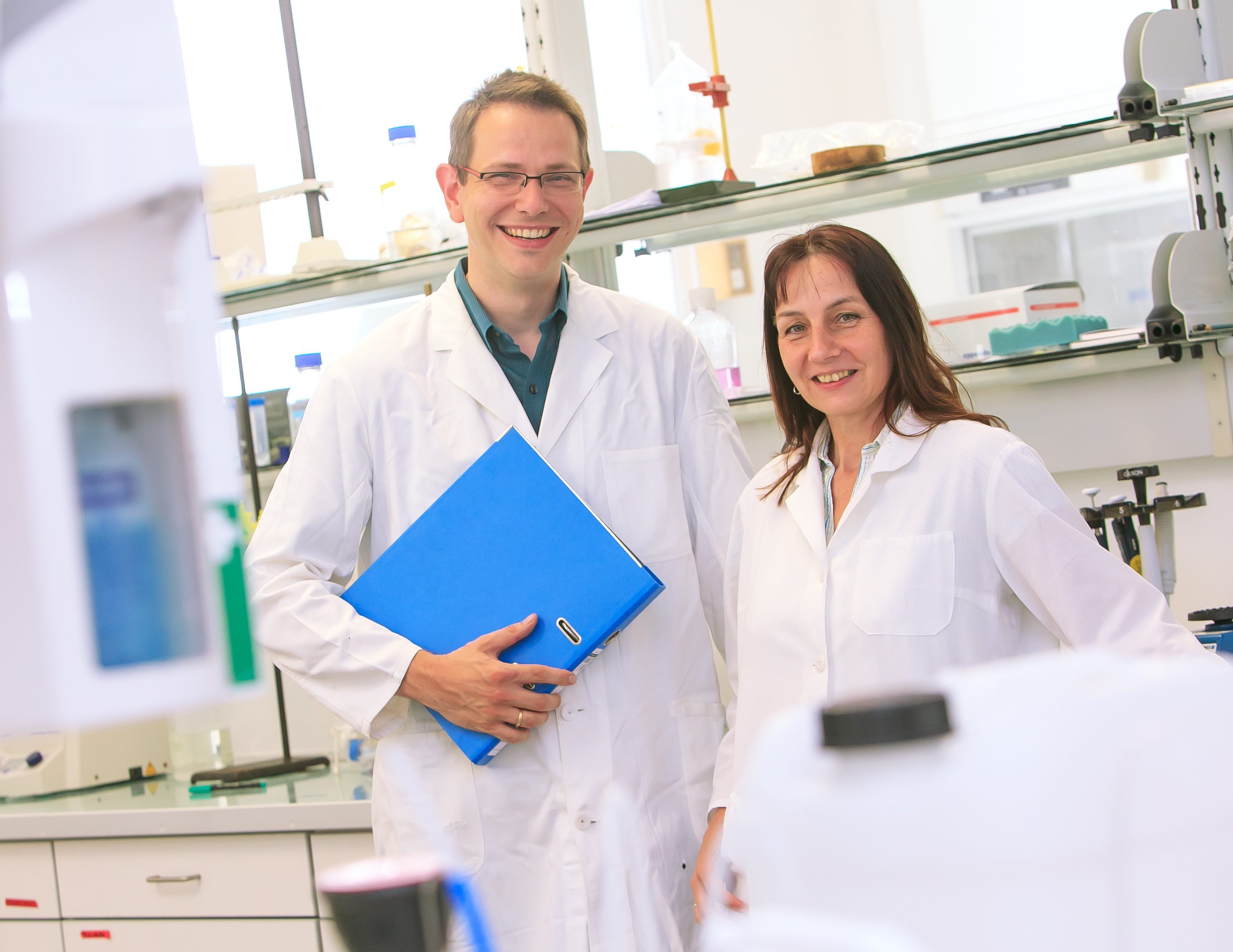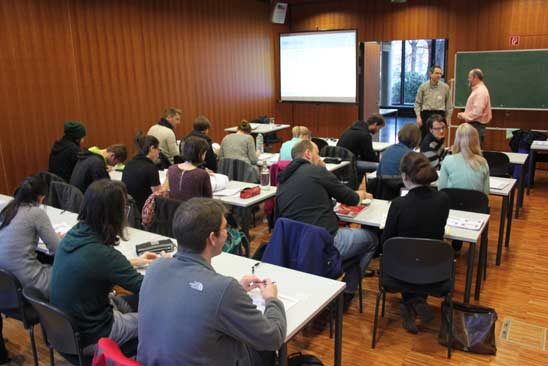The Max Kade Foundation (MKF, www.maxkadefoundation.org) supports an international research exchange between Vanderbilt and Leipzig Universities. Specifically, MKF provides funds of three‐four undergraduate students from each university to conduct a 10 week summer internship at the respective partner university. Travel costs and a weekly stipend are provided. They target rising junior and rising senior students at Vanderbilt University. To select the recipients of the stipend, we collect research project descriptions from around twenty core laboratories that support the collaboration between Vanderbilt and Leipzig Universities. Descriptions are provided by the graduate student or post‐doctoral mentor who will advise the undergraduate student. It is encouraged that the undergraduate student conducts research on the
It was the first time for me in the US and I had a lot of scientific and cultural experiences. Nashville is a vibrant city and definitely earns its name as “Music City”. Bars, live music, sports events… it does not get boring. Besides that, Nashville is a growing place for cutting-edge biomedical research. Vanderbilt University (VU) hosts many groups working in this field and is nation-wide known for its research. For me as a young scientist, it was an invaluable experience to get insight into this institution. The aim of my Ph.D. project is the discovery of small molecule inhibitors against the Ovarian Tumor (OTU) Protease of the Crimean-Congo Hemorrhagic
This summer, I had the incredible opportunity to travel to Nashville as part of my PhD project, collaborating with local scientists. Additionally, my internship coincided with attending the RosettaCon conference in Seattle, renowned for being one of the finest computational structural biology conferences. It boasted a multitude of captivating talks and provided a valuable chance to connect with fellow researchers. This trip also allowed me to participate in Meiler’s Lab retreat held in the breathtaking Great Smoky Mountains. My PhD research focuses on peptides, specifically designing therapeutic candidates using non-canonical amino acids. In Nashville, my primary goal was to explore the capabilities of existing software for designing peptides based on non-canonical
During my stay in Leipzig, I worked under Felipe Engleberger to explore the potential for Large Language Models (LLMs) to answer scientific questions. Knowing that LLMs have created such an impact on everyday life through technologies such as ChatGPT, I was excited to contribute towards expanding their function to fulfill scientific tasks, yet like all research questions, executing is much easier said than done. To begin this endeavor, we focused on a specific task–exploring if we could empower a chat agent to find mutations to optimize the thermal stability of a protein, a common question in protein design. I was pretty new to the field of artificial intelligence; thus, I started
On June 9, we invited representatives from Vanderbilt University to Leipzig for a scientific exchange at the first symposium after the corona pandemic. The international scientists of the Vanderbilt Diabetes Research and Training Center talk about kidney-focused and diabetes-related research: Prof. Dr. Roy Zent: “The actin cytoskeleton in epithelial cell repair”Prof. Dr. Ming-Zhi Zhang: “The role of ErbBreceptor family in progressive kidney disease and metabolic syndrome”Prof. Dr. Matthias Blüher: ”Healthy obesity –myth or fact?” Prof. Dr. Raymond Harris: “The role of myeloid cyclooxygenase-2 in kidney injury and adiposity”Prof. Dr. Ambra Pozzi: “Cell penetrating peptide therapy in organ fibrosis”Prof. Dr. Berend Isermann:„Coagulation protease signaling in kidney disease –on the path to new therapies?”
We cordially invite you to a four day block seminar “Integration of Experimental Data with Artificial Intelligence for the Investigation of Membrane Proteins” by: Dr. Matthias Elgeti, Prof. Dr. Jens MeilerLeipzig University, Medical Faculty Prof. Hassane Mchaourab, Prof. Erkan KarakasVanderbilt University DATE05 – 08. June 2023, EST The class will meet in presence and virtually on 4 days in the week from June 5th to June 8th always 9 pm-12 pm . COURSE DESCRIPTION Besides the theoretical basics for the investigation of membrane structures by NMR and EPR, the seminar will focus on integrative AI-mediated analysis, an innovative approach. WHO:Students and doctoral researchers, postdocs, public, for interested parties ROOM: Leipzig University, Faculty of Medicine, Härtelstr. 16-18, Room 018
BackgroundA previous postdoctoral research, in the Meiler Lab with 8 years of experience researching cholesterol interactions with membrane proteins. Research SummaryCholesterol is one of the most studied lipids as it relates to protein-lipid interactions. Cholesterol plays multiple biological roles in bile acid synthesis, steroidogenesis, and membrane dynamic function. Increasingly, evidence has shown that cholesterol also acts as a direct binder to IMPs, including G-protein coupled receptors (GPCRs). GPCRs are a protein superfamily containing seven transmembrane helices that are responsible for a wide variety of signaling responses. The seven helices form a hydrophobic pocket accessible from the extracellular side, forming the orthosteric pocket for endogenous ligands to bind to. The binding of
Dear colleagues, we want to bring your attention to an announcement the chancellor and provost made earlier this week: Vanderbilt has launched a new Global Scholars in Residence program, which provides funding to faculty who wish to bring accomplished international scholars to campus to contribute to our intellectual community. I encourage you to take advantage of this opportunity. We are, fortunately, in a position now where travel restrictions have lifted and we can once again collaborate with colleagues abroad. The exchange of ideas across borders, disciplines, perspectives, and cultures is valuable to faculty and students alike, expanding our understanding and strengthening our research and discovery. Details about how to apply are
Early in 2020 I started my Master Thesis by developing an evolutionary algorithm to optimize small molecules binding to protein targets of pharmaceutical interest. It was planned to start the project at Vanderbilt University in close cooperation with Rocco Moretti, the leading developer of small molecule code in the Rosetta Software suite. He is Assistant Professor in Jens Meilers group at VU. Unfortunately, the Covid pandemic struck, and the trip was canceled. This year, however, I got awarded another opportunity to travel to Vanderbilt for 8 weeks, now a PhD student and the initial project close to being published. Working closely together with Rocco Moretti and other Meiler lab scientist I
My time in the US was full of new experiences both scientifically and culturally. It already started off with a bang when beginning of August I was able to join the Summer RosettaCon near Seattle. My first in-person contact with the Rosetta Commons did not only bring exciting new perspectives on protein design and structure prediction from the top researchers of the field, but also invaluable first hand input on my projects during the poster sessions. Fast forward and halfway through this vast country I started my own research in Nashville. With Vanderbilt University hosting an excellent biomolecular NMR (nuclear magnetic resonance) facility, I planned to express and purify a Marburg
This summer I had the opportunity to travel to Nashville on a Max-Kade Fellowship to participate in a joined research project between Vanderbilt University, the Vanderbilt Medical Center and Leipzig University. I was fortunate that my stay corresponded with the Summer RosettaCon 22 in the sleeping lady resort in Washington state. This gave me the opportunity to meet other structural biology enthusiasts in my first in person conference since the Covid pandemic and explore Seattle and the surrounding area. Luckily also the Meilerlab retreat gave me the opportunity to go to Florida and get to know my fellow lab members at Vanderbilt. At Vanderbilt I tried to learn as much about
The Max Kade Foundation (MKF, www.maxkadefoundation.org) supports an international research exchange between Vanderbilt and Leipzig Universities. Specifically, MKF provides funds of three‐four undergraduate students from each university to conduct a 10 week summer internship at the respective partner university. Travel costs and a weekly stipend are provided. They target rising junior and rising senior students at Vanderbilt University. To select the recipients of the stipend, we collect research project descriptions from around twenty core laboratories that support the collaboration between Vanderbilt and Leipzig Universities. Descriptions are provided by the graduate student or post‐doctoral mentor who will advise the undergraduate student. It is encouraged that the undergraduate student conducts research on the
We cordially invite you to a one week block online seminar “ALPHAFOLD, ROSETTA, AND AMBER: Principles and Applications of Computational Structural Biology” by: Dr. Georg Künze, Dr. Clara T. Schoeder, Prof. Dr. Jens MeilerLeipzig University, Medical Faculty Dr. Jarrod Smith, Dr. Rocco Moretti, Dr. Benjamin P. Brown, Dr. Alican Gulsevin, Dr. Cristina E. MartinaVanderbilt University DATE01 – 05. August 2022, EST The class will meet virtually on 5 days in the week from August 1st to August 5th always 3 pm-6 pm . The laboratory portion will proceed on the same dates 7 pm-10 pm. Additionally, a short introduction to the Linux command line will be offered on the first day. This is a one credit course. COURSE DESCRIPTION Proteins
I took part in the Max Kade Foundation exchange program as a part of my 6 months long diploma, an additional and optional degree when studying pharmacy. Prior to my diploma and my stay in Nashville, research experiences were barely existent, as the study program of pharmacy does not notably focus on that. However, before deciding to pursue a diploma in this field, I made two internships of two weeks each that gave me a rudimentary insight into the wet lab and computational work. Also, first contact with the research field of adhesion coupled G protein receptors (AGPCRs) occured during that time because one of my projects covered the determination of
My PhD research at Leipzig University focus on the Growth Hormone Secretagogue Receptor (GHSR), a receptor in our cell membranes involved in food intake and part of the G-protein coupled receptors (GPCRs) family, key targets of pharmacological drugs. More specifically, I am investigating the conformational changes of this receptor in the presence of its ligand ghrelin or other extra and intracellular partners, using solid state NMR. After having to cancel my exchange for the summer 2020 due to the coronavirus pandemic, I finally had the awesome opportunity to work in the lab of Prof. Dr. Vsevolod V. Gurevich from February to April 2022. The main goal of this exchange was to
As the chemical space is incredibly large with up to estimated 1060 molecules defined as small-molecule ligand, sophisticated and benchmarked methods and pipelines for screening this huge space in a fast and reliable manner are needed. In recent year, virtual ultra-large library screening has witnessed a rapid development with increasing computational power, but also growing available commercial make-on-demand libraries, like the REadily AccessibLe (REAL) libraryof Enamine Ltd. with currently 21 billion chemicals. Pipelines for screening huge databases are available but rely heavily on screening all the compounds. In the Institute for Drug Discovery in Leipzig an in-silico ultra-large library screening pipeline using flexible models of GPCRs was developed, tested, and established.
Unique Opportunities in Gaining Research Experience in Germany and USA The Max Kade Foundation (MKF, www.maxkadefoundation.org) supports an international research exchange between Vanderbilt and Leipzig Universities. Specifically, MKF provides funds of three undergraduate students from each university to conduct a 10 week summer internship at the respective partner university in 2019 (May – December). The Max Kade Foundation Scholarship Program is open for highly motivated and excellent foreign applicants with a BSc, MSc or equivalent degrees (obtained during the past year). Internship offer in Leipzig for Undergraduate Students from Vanderbilt University Evolutionary Guided Design of Novel PET-Degrading Enzymes to increase Thermostability Dr. Georg Künze (Institute for Drug Development) Analysis of Ternary
We would like to invite you to our next VULU Lecture given by Dr. Matthias Elgeti (University of California, Los Angeles & Leipzig University, Germany) about “New biomolecular EPR lab”.
We would like to invite you to our next VULU Lecture given by Prof. Dr. Erkan Karakas (Vanderbilt University, Departmentof Molecular Physiology and Biophysics) about “Structural basis for activation and gating of IP3 receptor calcium channels.”
The Vanderbilt Center for Structural Biology, the Program in Personalized Structural Biology, and the Program in the Molecular Basis of Genetic Diseases will be holding a series of seminars to introduce AlphaFold. These talks will be held on Tuesday January 18, 2022, from 4:00 p.m. CEST (Leipzig time) via Zoom. SpeakersJens Meiler, PhD (Chemistry)Hassane S. Mchaourab, PhD (Molecular Physiology & Biophysics)David Rinker, PhD (Chemistry)Jarrod Smith, PhD (Biochemistry)Rich Stein, PhD (Molecular Physiology & Biophysics)Taylor Jones (Chemical and Physical Biology Program)Diego Del Alamo (Chemical and Physical Biology Program) Topics+ Ramifications and impact of AlphaFold on biomedical sciences+ AlphaFold and the diagnosis of genetic disorders+ Applications of AlphaFold to personalized medicine+ AlphaFold and AlphaFold-Multimer+
We would like to invite you to our next VULU Lecture given by Prof. Dr. Hassane Mchaourab (Vanderbilt University, Departmentof Molecular Physiology and Biophysics) about“EPR in the age of cryoEM: Two recent stories.”
The Max Kade Foundation (MKF, www.maxkadefoundation.org) supports an international research exchange between Vanderbilt and Leipzig Universities. Specifically, MKF provides funds of three‐four undergraduate students from each university to conduct a 10 week summer internship at the respective partner university. Travel costs and a weekly stipend are provided. They target rising junior and rising senior students at Vanderbilt University. To select the recipients of the stipend, we collect research project descriptions from around twenty core laboratories that support the collaboration between Vanderbilt and Leipzig Universities. Descriptions are provided by the graduate student or post‐doctoral mentor who will advise the undergraduate student. It is encouraged that the undergraduate student conducts research on the
We cordially invite you to a one week block online seminar “Exploring Biomolecules in 3D: Principles and Applications of Computational Structural Biology” by: Prof. Dr. Jens Meiler(Leipzig University, Coordinator)Dr. Georg Kuenze(Leipzig University)Prof. Dr. Jarrod Smith(Vanderbilt University / USA)Prof. Dr. Rocco Moretti(Vanderbilt University / USA) DATE16 – 20. August 2021, EST (13. August 2021 technical setup) The class will meet virtually on 5 days in the week from August 16th to August 20th always 8:00 a.m. -11:00 a.m. CDT / 3:00 p.m. – 6:00 p.m. CEST. The laboratory portion will proceed on the same dates 12:00 p.m. – 3:00 p.m. CDT / 7:00 p.m. – 10:00 p.m. CEST. The laboratory portion on August 13th is indented to sort out
We would like to invite you to our next VULU Lecture given by Dr. Qiuyan Chen (Prof. John Tesmer lab / Purdue University / USA) Title:Structure of the rhodopsin–rhodopsin kinase complex defines the rules of engagement between G protein-coupled receptors (GPCRs) and GPCR kinases
We cordially invite you to a two week block online seminar “Solution NMR integrated with Computational Modeling to study Membrane Proteins” by: Prof. Dr. Jens Meiler(Leipzig University, Vanderbilt University / USA, Organizer)Prof. Dr. Chuck Sanders(Vanderbilt University / USA)Dr. Georg Künze(Leipzig University, Vanderbilt University / USA)Dr. Davide Sala(Leipzig University) DATE07 – 18. December 2020, 3 – 5 p.m. CEST (15:00 – 17:00 Uhr Leipzig). AIMSTeach theoretical and practical aspects of integrating solution NMR with computational modelling to study membrane protein computational structure, dynamics, and function.BASICSBiochemistry, amino acid structure, peptide bond, secondary structure, tertiary structure, biological membrane, protein sensors, protein transporters, protein channelsCOURSE DESCRIPTION The Module includes theoretical and practical aspects of protein sequence alignments, secondary structure
We would like to invite you to our next VULU Lecture given by Prof. Dr. Thorsten Berg, Faculty of Chemistry and Mineralogy at Leipzig University “Small-molecule inhibitors of cancer-related protein-protein interactions“ Protein-protein interactions form the basis of most biological processes, but represent very challenging targets for small organic molecules. The focus of our current research is to develop and apply innovative methods for the efficient design of small organic modulators of protein-protein interactions. These methods are applied for the synthesis and functional characterization of highly potent modulators of pre-selected protein-protein interactions. The presentation will give an overview on our recent work in the following areas: 1) development of selective inhibitors of
Syllabus – CPBP 8330 – Special Topics in Protein BiochemistryCOMPUTATIONAL METHODS TO STUDY PROTEIN STRUCTURE AND DYNAMICS Course Description:Biomolecules undergo constant motions and fluctuations in their native environment. Many of these motions are directly related to function: Channels have to open or close, transporters change their form to conduct molecules and receptors undergo conformational changes to transmit signals through membranes. Despite that obvious dynamics, biomolecules are still commonly considered as rigid entities that exist in one or only few states. This limitation largely prevents understanding of molecular events that are guided or even ruled by intrinsic flexibility such as ligand binding or protein-protein recognition. Molecular dynamics (MD) simulation is a well-established
[article written by Peggy Darius Leipzig University] The COVID 19 pandemic poses a major threat to global health and currently there is little medical response. In addition, there is a lack of a profound understanding of the molecular mechanisms of the body’s immune system. An international team has now succeeded in scientifically describing highly active neutralizing human antibodies against the corona virus SARS-CoV-2. Humboldt Professor Jens Meiler of the University of Leipzig contributed to the study, which has now been published in the scientific journal “Nature”. Highly active neutralizing human antibodies against the coronavirus SARS-CoV-2 can be used for the development of vaccines and can also be used as therapy in
[article only in german language, article written by Dr. Katarina Werneburg Leipzig University / picture: Christian Hüller / Universität Leipzig, SUK] Alte Heimat und neue Herausforderung Was sind die Forschungsschwerpunkte unserer Professoren? Was ist ihnen in der Lehre wichtig, und haben unsere Experten eigentlich auch Hobbys oder ein Lebensmotto? Im LUMAG stellt sich auch heute wieder einer unserer neuberufenen Professoren vor. Diesmal ist es Jens Meiler vom neu gegründeten Institut für Wirkstoffentwicklung. Sein Fachgebiet ist die computergestützte Wirkstoffforschung. Herr Meiler, woher kommen Sie und was haben Sie studiert? Ich bin in Leipzig geboren und aufgewachsen. Nach meinem Abitur am Wilhelm-Ostwald Gymnasium studierte ich Chemie an der Universität Leipzig. Was waren Ihre
We would like to invite you to our next VULU Lecture given by Dr. Davide SalaFondazione Sacconi, Milan, Italy Computational investigation of (metallo) proteins structure and dynamics Abstract Proteins that require one or more metal ions to perform their biochemical function are called metalloproteins. To date, metalloproteins are estimated to be one-third of all proteins in most of the organisms and are involved in many fundamental biochemical processes. In this regard, the large diffusion of powerful and cost-effective GPGPU units has allowed the computational exploration of a number of biological processes using techniques based on molecular dynamics (MD). Thus, computational methods as MD can be exploited to investigate metalloproteins structural properties
In the recent years, we pursued the goal to map the binding site of the ligand NPY at human neuropeptide Y5 receptor (Y5R). Therefore, we applied an approach called genetic code expansion to incorporate a photoreactive amino acid at a desired site at the extracellular part of the receptor. The obtained photocrosslinking-data revealed the proximity of several receptor positions to NPY in the ligand-receptor complex. Hence, giving us deeper insights into the receptor-binding pocket. For the visualization of my experimental data in a comparative model, I got the opportunity to perform the computational modeling in the laboratories of Jens Meiler at the Vanderbilt University in Nashville, Tennessee. In the course of
As a Master candidate of the Biochemistry program at Leipzig University I focus on analytics and structural biology. My studies mainly concentrated on performing experiments in the wet lab and I had only little knowledge of Rosetta and scientific programming. During my stay I worked on the computational modelling of G protein-coupled receptors (GPCRs) using the Rosetta homology modelling protocol. GPCRs are membrane proteins, which are crucial for translating extracellular signals into an intracellular response. It has been shown that these proteins are prone to misfolding during insertion into the membrane. During my research I tried to model a proposed misfolded state of the light-sensitive GPCR Rhodopsin[1] and managed to
[Press Release 25/11/2019, Leipzig University 234/2019 by Carsten Heckmann / Photo: Leipzig University, Swen Reichhold] Further boost for top-level research at Leipzig University: New Collaborative Research Centre gets go-ahead and two more are extended. The University’s new Collaborative Research Centre (CRC), “Structural Dynamics of GPCR Activation and Signal Transduction”, will focus on how cells communicate via important receptors. Its spokesperson will be Professor Annette G. Beck-Sickinger. Applications for a second funding period were also successful for the projects “Arctic Climate Change (AC)³” (spokesperson: Professor Manfred Wendisch, Leipzig Institute for Meteorology) and “Processes of Spatialization under the Global Condition” (spokesperson: Professor Matthias Middell, head of Leipzig University’s Centre for Area Studies). Brief
December 19, 2019; 12:30: Talk at the at Fraunhofer Institute for Cell Therapy and Immunology – IZI Abstract: Despite decades of intensive research, a vaccine capable of protecting against HIV-1 infection remains elusive. The immuno-evasion strategies employed by the HIV-1 envelope glycoprotein have been a significant challenge to progress in the field. However, antibodies capable of neutralizing most circulating HIV-1 strains have been isolated from infected patients, thus providing templates for vaccine development. In this seminar, approaches will be discussed that utilize rational protein design to develop immunogens which specifically activate B cells from broadly neutralizing antibody lineages, which may lead to the development of a prophylactic HIV vaccine. Contact: Prof.
The Max Kade Foundation (MKF, www.maxkadefoundation.org) supports an international research exchange between Vanderbilt and Leipzig Universities. Specifically, MKF provides funds of three‐four undergraduate students from each university to conduct a 10 week summer internship at the respective partner university. Travel costs and a weekly stipend are provided. They target rising junior and rising senior students at Vanderbilt University. To select the recipients of the stipend, we collect research project descriptions from around twenty core laboratories that support the collaboration between Vanderbilt and Leipzig Universities. Descriptions are provided by the graduate student or post‐doctoral mentor who will advise the undergraduate student. It is encouraged that the undergraduate student conducts research on the
December 12, 2019; 14:00: Talk at the Department of Evolutionary Genetics Location:Seminar Area Genetics Abstract: [will be annouced soon] Contact: Max-Planck-Institut für evolutionäre Anthropologie Janet Kelso (mail: ) Website: https://www.eva.mpg.de/genetics/index.html
December 05-19, 2019. This course teach theoretical and practical aspects of computational biology including the integration of Human Genetics with Molecular Modeling. It focus on aspects of protein sequence alignments, secondary structure prediction, comparative modeling, protein-protein and protein-ligand docking, structure-based drug design, virtual screening, the relationship of protein sequence, structure, variation, and disease. This course includes a practical section and is intended for PhDs, PostDocs and Students. 05.-06.12.2019, 9 AM – 04 PM Module 1: STRUCTURE BASED MOLECULAR MODELINGProf. Jens Meiler (Vanderbilt University/USA) *Introduction to Structural Biology *Protein Structure Prediction with Rosetta *Protein Structure Determination from Limited Experimental Data * Protein Engineering and Design 09.-12.12.2019, 09 AM – 1 PM Module
September 4-10, 2019: Syllabus – CPBP 8330 – Special Topics in Protein Biochemistry: Dr. Dr. Ines LiebscherLeipzig University, Medical Faculty, Institute of Biochemistry Date 04 – 10 September 2019 VenueDepartments of Chemistry, Pharmacology, and Biomedical Informatics, Center for Structural Biology, and Institute of Chemical Biology, 465 21st Ave South, BIOSCI/MRBIII, Room 5131, Nashville, TN 37232-8725 Program: Research techniques are always changing, they develop and improve and sometimes it is hard to stay fully informed. In this module we will talk about different methods and techniques you want to use to be most efficient in your project. In the first half of the module we will introduce you to the basics and
Johanna K. S. Tiemann1, Prof. Dr. Vsevolod Gurevich2, Dr. Sandra Berndt2 1. Leipzig University 2. Vanderbilt University The aim of my exchange was to deepen the collaboration between the laboratory of Prof. Peter Hildebrand and Prof. Tina Iverson and Prof. Seva Gurevich and to push the project on the investigation of arrestin interactions with SRC family kinases forward. Arrestin is a key intracellular downstream signaling molecule, mediating G protein-coupled receptors and other proteins such as kinases. Those proteins are involved in tumor progression and metastasis, their study, therefore, of noticeable interest. Especially the interaction of arrestin with kinases, in particular, SRC family kinases is so far barely understood. Through the established
[article written by Dr. Katarina Werneburg Leipzig University / picture: Humboldt-Stiftung/Elbmotion] The Alexander von Humboldt Foundation awarded Prof. Dr. Jens Meiler the highly endowed Alexander von Humboldt Professorship. The 44-year-old is one of the world’s most distinguished researchers in the field of computer-aided drug discovery. The Alexander von Humboldt Professorship is Germany’s most valuable research prize. “I am delighted that the long-standing research partnership between Leipzig University and Vanderbilt University has now culminated in Jens Meiler’s Humboldt Professorship. This will unlock new horizons for Professor Beck-Sickinger’s already highly successful area of research into molecular mechanisms. It will also considerably strengthen our degree program in Pharmacy at the Faculty of Medicine,” commented
Unique Opportunities in Gaining Research Experience in Germany and USA The Max Kade Foundation (MKF, www.maxkadefoundation.org) supports an international research exchange between Vanderbilt and Leipzig Universities. Specifically, MKF provides funds of three undergraduate students from each university to conduct a 10 week summer internship at the respective partner university in 2019 (May – December). The Max Kade Foundation Scholarship Program is open for highly motivated and excellent foreign applicants with a BSc, MSc or equivalent degrees (obtained during the past year). Internship offer in Leipzig for Undergraduate Students from Vanderbilt University Analysis of Ternary Complexes of G-Protein Coupled Receptors Using Molecular Dynamics Simulations. Prof. Dr. Hildebrand/Dr. Vogel (Institute of Biophysics) Structural
Enhancing pathogenicity prediction from structure and evolution with machine learning Currently I am enrolled in a Computer Science Master program at the University of Leipzig. Since my program offers no practical experience in scientific research I was excited when I got offered to participate in the Max Kade Foundation Fellowship. During my ten weeks stay I started a completely new project with the goal to develop a pathogenicity prediction score on point variants in human genes incorporating structural and evolutionary features. Obviously, the scope of this project was way to big to be fulfilled during ten weeks only, so I aimed to collect some data, calculate features and train a machine
I am a PhD student in Leipzig in the lab of Annette Beck-Sickinger. My research focuses on investigation of ligand-binding at a speci c G protein-coupled receptor, the chemokine-like receptor 1. This receptor is involved in multiple in ammatory diseases and therefore is a promising drug target. While we have the possibility to investigate the pharmacology of this receptor here in Leipzig, the lab of Jens Meiler at Vanderbilt offers computational methods to improve understanding of this receptor on a molecularlevel. Hence, I spent 10 weeks in Vanderbilt, where I had the possibility to learn using the software suite Rosetta, which includes a variety of algorithms for protein structure prediction and is
Adhesion G protein-coupled receptors (aGPCRs) are expressed in various cell types, including cells of the immune system and central nervous system. Furthermore, they were reported to be involved in tumorgenesis. Besides their physiological relevance the majority of them have not been functionally characterized in detail. Notably, in contrast to other GPCRs this class of receptors possess an autoproteolytical site within their N-terminus at which they are cleaved. It is known that aGPCRs can be activated by their Stachel-sequence, a short tethered agonist sequence N-terminal of this cleavage site. However, both the binding pocket and the mechanism of its activation remain to be characterized. Using the smallest and noncleaved GPR114 as a
December 11-18, 2018; Biochemical Lecture – Special Topics in Biochemistry Lecture on “Modeling Proteins guided by Electron Paramagnetic Resonance and Mass Spectrometry” 11.-14.12.2018, 01 PM – 04 PM Module 1: Molecular Modeling Prof. Jens Meiler (Vanderbilt University/USA) *Introduction to Structural Biology *Protein Structure Prediction with Rosetta *Protein Structure Prediction from EPR DATA 17.-19.12.2018, 09 AM – 4 PM Module 2: Biomolecular electron paramagnetic resonance spectroscopy (EPR) Prof. Eric Hustedt (Vanderbilt University/USA) *Introduction to Site-Directed Spin Labeling (SDSL) and Electron Paramagnetic Resonance (EPR) Spectroscopy *Distance Measurements and Pulsed EPR *Discussion of Significant EPR Papers Module 3: Molecular Dynamics MS-based Modeling Prof. Steffen Lindert (Ohio State University/USA) *Molecular Mechanics *Molecular Dynamics *Protein Structure
October 20-24, 2018; Syllabus – CPBP 8330 – Special Topics in Ligand-Protein Recognition Prof. Dr. Annette G. Beck-Sickinger, Leipzig University, Faculty of Life Sciences, Institute of Biochemistry Date October 20-24, 2018 Venue Departments of Chemistry, Pharmacology, and Biomedical Informatics, Center for Structural Biology, and Institute of Chemical Biology, 465 21st Ave South, BIOSCI/MRBIII, Room 5131, Nashville, TN 37232-8725 The student will become familiar with the synthesis, analysis, chemical modification and biological testing of peptide and protein GPCR ligands. Many ligands of GPCR belong to the family of peptides and proteins. This includes all class B GPCR ligands, e. g. calcitonin, glucagon and the pharmacologically relevant GLP-1, from which modified analogies have
(30/04/2018 by Anett Albrecht): A joint publication of Leipzig and Vanderbilt scientists was published in April 2018 in the prestigious journal “Nature”. The article continues the series of numerous publications that have emerged already from the long-term collaboration between the Leipzig and Vanderbilt University. Abstract: Neuropeptide Y (NPY) receptors belong to the G-protein-coupled receptor superfamily and have important roles in food intake, anxiety and cancer biology 1,2 . The NPY-Y receptor system has emerged as one of the most complex networks with three peptide ligands (NPY, peptide YY and pancreatic polypeptide) binding to four receptors in most mammals, namely the Y1, Y2, Y4 and Y5 receptors, with different affinity and selectivity 3
[press release written by Susann Huster/Anett Albrecht, April 10, 2018] The cooperation between the University of Leipzig and Vanderbilt in Nashville (USA) has been contractually sealed for another ten years. A few days ago, the rectors of both universities signed a Memorandum of Understanding. The American Max Kade Foundation had previously approved an application for funding from project leaders Prof. Dr. Annette Beck-Sickinger from the Institute of Biochemistry at the Leipzig University and Prof. Dr. Jens Meiler from Vanderbilt University: The foundation will also support the exchange with 50,000 dollars (40,000 euros) per year between 2017 and 2021. “We hope that the already established excellent relations with Vanderbilt University will continue
The Max Kade Foundation (MKF, www.maxkadefoundation.org) supports an international research exchange between Vanderbilt and Leipzig Universities. Specifically, MKF provides funds of three undergraduate students from each university to conduct a 10 week summer internship at the respective partner university in 2018 (May – September). The Max Kade Foundation Scholarship Program is open for highly motivated and excellent foreign applicants with a BSc, MSc or equivalent degrees (obtained during the past year). Identification of functional protein-protein-interactions of the ecto- and endodomain of adhesion G protein-coupled receptors (Prof. Dr. Vsevolod Gurevich) Investigation of Ligand Binding at the Chemokine-Like Receptor 1 (Prof. Dr. Jens Meiler) Rosetta docking of allosteric modulators to the Y4 receptor.
Biochemical Colloquium – Special Topics in Biochemistry: Prof. Dr. Jens Meiler, Center for Structural Biology, Departments of Chemistry, Pharmacology, and Biomedical Informatics, Vanderbilt University, Nashville Tenessee Date October 24, 2017 / 5 PM Venue Leipzig University, ITP – Institute for Theoretical Physics, Lecture Hall, Linnéstraße 5, 04103 Leipzig, Germany. Backround The protein folding problem – i.e. predicting the three-dimensional structure of a protein from its amino acid sequence alone – is an unsolved problem in computational biology. I will present a novel computational approach to this problem that assembles protein tertiary structure from predicted secondary structure elements. I will demonstrate how this algorithm can be combined with limited EPR- and NMR-spectroscopic

